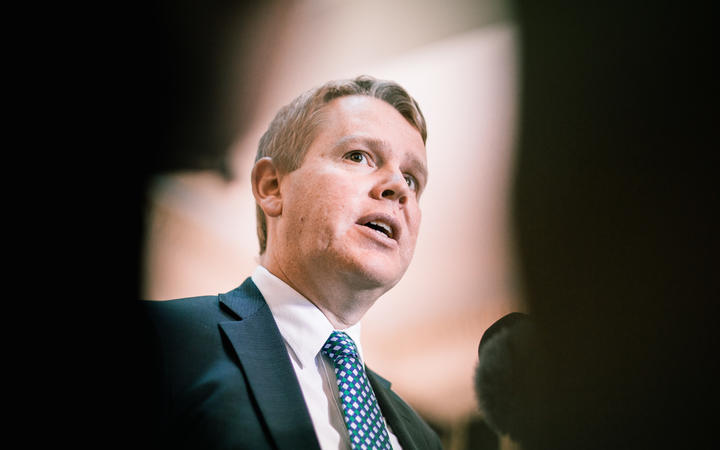
Speaking to The AM Show, Hipkins said while the Government was absolutely committed to the traffic light system, a back-up plan would be reinstating the alert level system, which is set to be dismantled next week.
The Government would have to revert to the alert level plan if it had a variant of the virus that was resistant to the vaccine, he said.
It was a possibility, but it's not what they thought would happen, he added.
Defending the speed at which the traffic light legislation was rushed through, he said he would much prefer to put things through a usual parliamentary process. It was not ideal, but they had put safeguards in place.
Hipkins told TVNZ Breakfast that in a pandemic they had to make decisions and in an ideal world he would like to have run it through select committee for six months.
While they could have slowed the process down, that would have meant Auckland would have waited longer to get out of restrictions as well as the rest of the country, and he didn't want people to wait longer than need to.
However, there were extra safeguards in place, he said.
Every order that was made under the new bill would get scrutinised and had to be periodically renewed by Parliament.
Responding to criticism over vaccine passports meaning more bureaucracy for business owners, he said businesses were keen to reopen and this was the way they were able to open.
Having vaccine requirements to be in certain places was the way to keep themselves and customers safer, he said.
He acknowledged it will be an extra cost on business, but likened it to the hospitality industry having to check ID to ensure people are over 18.
Australians expected to flock to NZ
Hipkins also said tens of thousands of people would be coming across the border each week when it reopened to Australia in January.
He said it was difficult to model how many positive cases would come into New Zealand from international travellers.
"We have to accept the reality that the risk of Covid-19 around international travel is going to be progressively increasing over the next three to four months."
It was possible Australia would see surges as it reopened its borders internally, but it was also possible it wouldn't.
He said the fact they were double vaccinated didn't mean they couldn't be carrying Covid-19.
"You can't just isolate Australia. If you look at our case numbers across the border about 50 fully-vaccinated people in the last couple of months have come in and tested positive for Covid-19 on arrival."
Hipkins said the 5000-odd cases New Zealand was currently dealing with stemmed from one case from New Zealand.
While the country was opening up they didn't want a whole lot of extra risk all at the same time. He said they were trying to "step through" the easing of restrictions with Auckland reopening next week and the border lifting a week later.
The Government had been looking at other highly vaccinated countries and some were still experiencing a lot of difficulty at the moment. "We want to try and do this in a way that's sustainable."
However, a lot could happen in the first quarter of next year and they had some "positive prospects" on the horizon.
Potentially having 5 to 11-year-olds vaccinated early next year, as well as booster shots being rolled out from next week would add to the layer of protections and the risk profile would continue to evolve, he said.













